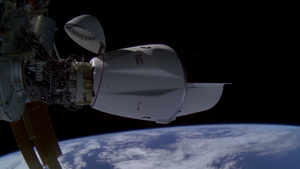
Jul 18, 2024
NASA cancels VIPER lunar rover
NASA announced on July 17th that it was ending its work on the VIPER lunar rover. VIPER, or Volatiles Investigating Polar Exploration Rover, was a Lunar Discovery and Exploration Program mission that would search for the location of water ice and other potential resources on the surface of the Moon.
The agency's reasoning for canceling the VIPER lunar rover mission were: cost overruns, schedule delays, and risks to other Commercial Lunar Payload Services missions. VIPER was originally set to liftoff in late 2023 but was delayed to after September 2025 before cancellation.
The original budget for the VIPER mission was 433.5 million United States Dollars to meet a 2023 landing, but this was later raised to 505.4 million as delays to the landing date arose. Joel Kearns, Deputy Associate Administrator for Exploration in NASA's Science Mission Directorate, said the latest cost estimate for a 2025 landing would have further increased cost to 609.8 million.
After a launch on SpaceX's Falcon Heavy, VIPER would have been delivered to the lunar surface onboard Astrobotic's Griffin lunar lander. With the lunar rover now no longer heading to space, a mass simulator will take the place of VIPER on Griffin as NASA is still paying for a landing via the Commercial Lunar Payload Services program. This landing is currently scheduled for no earlier than fall of 2025.

NASA currently plans to disassemble VIPER to reuse its instruments and components on other lunar missions where applicable. Disassembly will go ahead in August after the agency considers 'expressions of interest' from its international partners and U.S. industry for the use of VIPER and its systems, so long as it costs the U.S. government nothing.
NASA's blog post announcing the cancellation of VIPER stated that the agency will pursue 'alternative methods' of achieving the scientific goals of the mission. Nicola Fox, Associate Administrator for NASA's Science Mission Directorate, said the following about the agency's lunar exploration plans moving forward:
“We are committed to studying and exploring the Moon for the benefit of humanity through the CLPS program,” – “The agency has an array of missions planned to look for ice and other resources on the Moon over the next five years. Our path forward will make maximum use of the technology and work that went into VIPER, while preserving critical funds to support our robust lunar portfolio.”
The cancellation of VIPER is expected to save NASA 84 million United States Dollars in cost by no longer continuing development of the rover. NASA is still obligated to pay Astrobotic for Griffin, as mentioned earlier, for a total of 323 million, as the company completes milestones.



